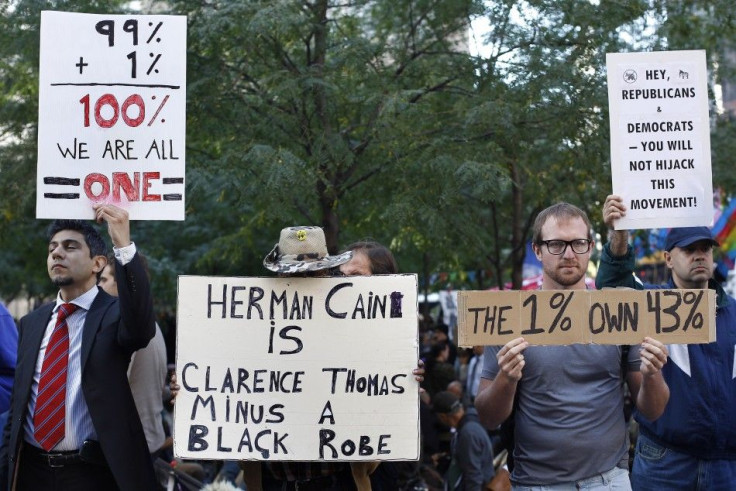Occupy Wall Street Protests: Movement Sees Support From New York City Voters

The Occupy Wall Street movement has garnered support from the likes of Kanye West, Susan Sarandon, Michael Moore, Mark Ruffalo and Tim Robbins. With Monday came the revelation of a new group of supporters perhaps even more important than celebrity figures -- New York City voters.
And not only do voters overwhelmingly favor Occupy Wall Street protestors' right to protest in Zuccotti Park, they also overwhelmingly agree with them.
In the results of a Quinnipiac University survey released Monday, 87 percent of respondents said the protestors have the right to camp out in Lower Manhattan, according to Reuters, as long as they do not break any laws. And 67 percent of respondents said they agreed with the Occupy Wall Street protestors, who are protesting against what they feel is corporate greed.
Monday marked the one-month anniversary of the start of the protests in Zuccotti Park, just a few blocks away from the New York Stock Exchange. The Occupy Wall Street protests have inspired hundreds of startups in cities across the United States and the world, with a Day of Rage springing up last weekend.
Of course, the poll was split along party lines. Democrats supported the protestors at an 81 percent clip, while Republicans were drastically down at 35 percent.
In other interesting notes from the poll, 37 percent of voters -- the largest block in that question -- blamed President George W. Bush and his administration for causing the nation's economic problems. And 21 percent pointed the finger at banks. Overall, 73 percent of pollsters were in favor of tougher government regulation.
The protests have been peaceful in New York, which has always been the center of the global movement. Last weekend, violence sprang up in Rome, where more than 100 people were injured.
The Quinnipiac poll was taken during the Oct. 12-16 period, and it surveyed 1,068 registered voters. Its margin of error was plus or minus three percent.
© Copyright IBTimes 2024. All rights reserved.











